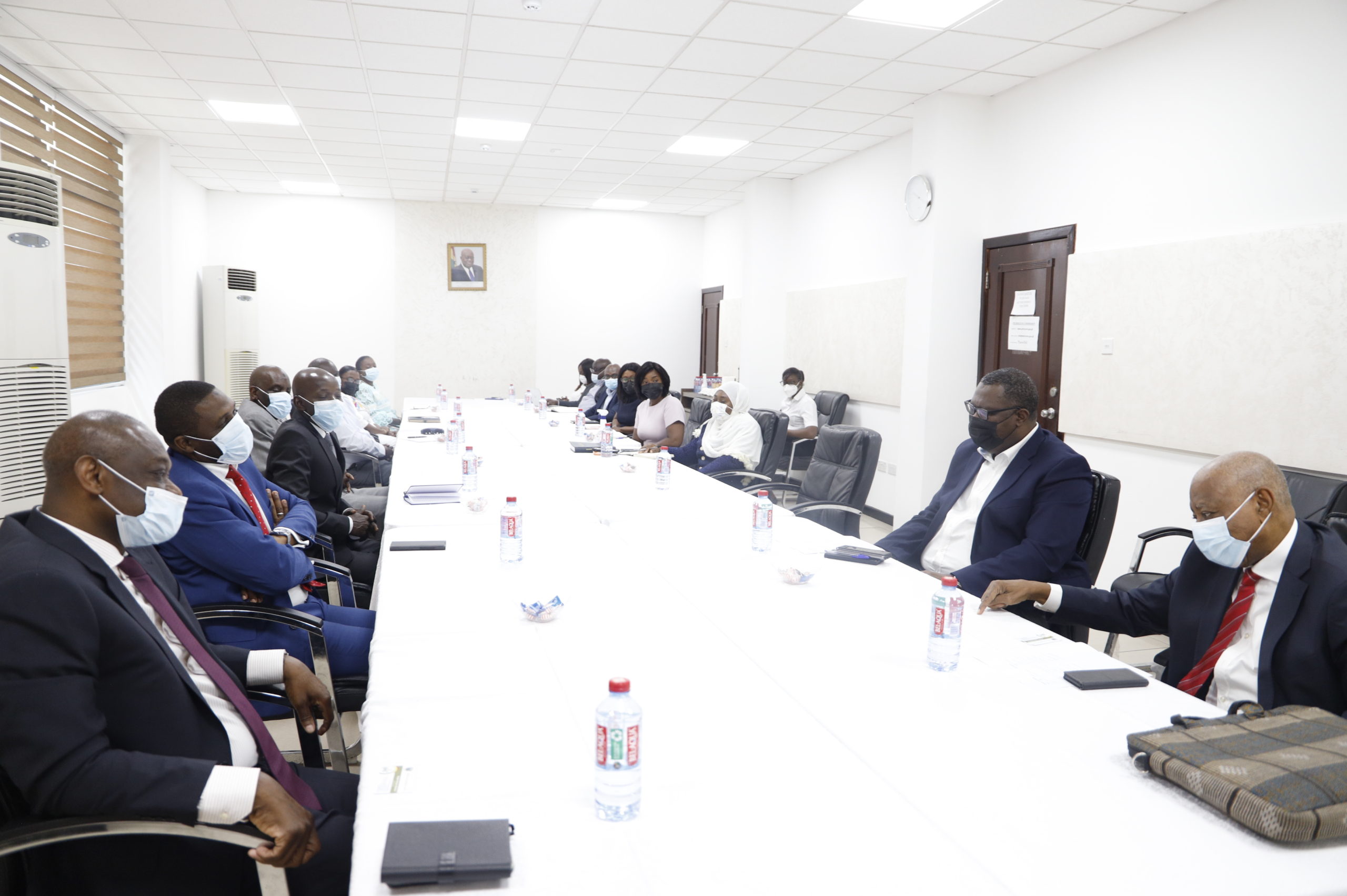The Petroleum Commission, Ghana received a seven-member Board from its Gambian counterpart earlier this week. The working visit was aimed at deepening the relationship between the two countries while providing an avenue for the Gambian Commission to understudy best practices in Ghana’s upstream petroleum industry.
The seven-member Board led by its Chairman, Mr. Edi Faal, engaged its Ghanaian counterpart on the various strategies adopted to avoid missteps associated with fledgling industries and also ensure the efficient exploitation of their petroleum resources in the interest of their nation.
“In this industry, experience is very important. We considered similar organizations within the sub-region that were making progress in the upstream space, and Ghana was one of the countries that we identified. We want to know your challenges, successes, and any other pointers that you can share with us to lead us on the right path,” he said.
On behalf of the host Commission, the Board Chairman, Mr. Stephen Sekyere Abankwah, welcomed the Gambian delegation and thanked them for recognising the Commission’s regulatory efforts in the sub-region.
“We are pleased to have you here. We trust that we will have fruitful deliberations that will provide significant assistance in the management of your upstream petroleum resource,” he said.
On his part, CEO of the Petroleum Commission, Mr. Egbert Faibille Jnr. highlighted the need to build local capacity to enhance participation of indigenous companies which is imperative to develop a sustained industry.
He further urged the Gambian delegation to hasten the development of their petroleum resource amidst calls for countries to transition towards green energy.
Manager, Legal at Petroleum Commission, Ghana, Ms. Nana Akua Agyei, also spoke about the mandate and functions of the Commission touching on institutional arrangements, collaborations, regulatory strategy of the Commission, policies, laws and guidelines used in governing the upstream sector.
The Gambian Commission was established just about eight-months ago to regulate, oversee, and monitor activities in the upstream petroleum sector to provide a conducive regulatory environment which contributes to the sustainable development of the petroleum resource.
Source: Petroleum Commission

